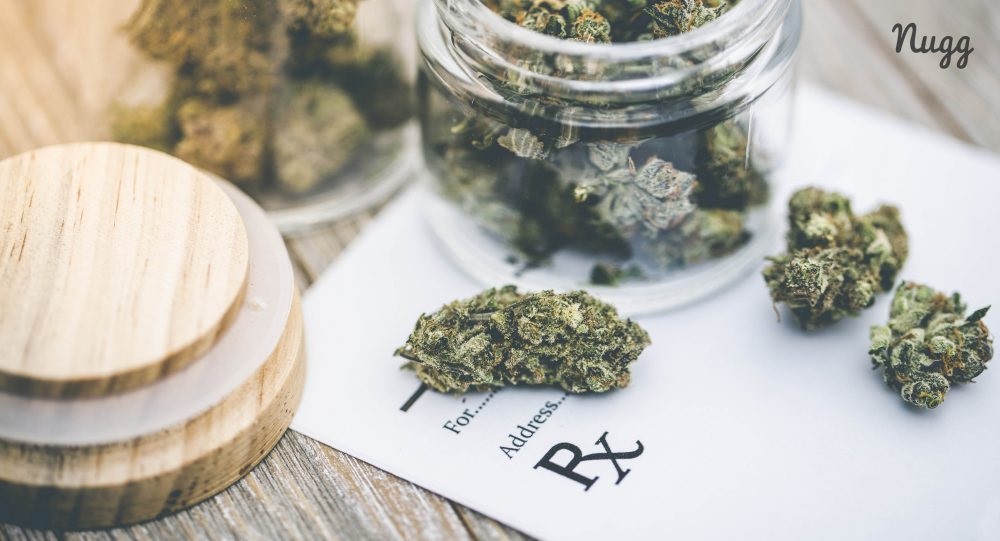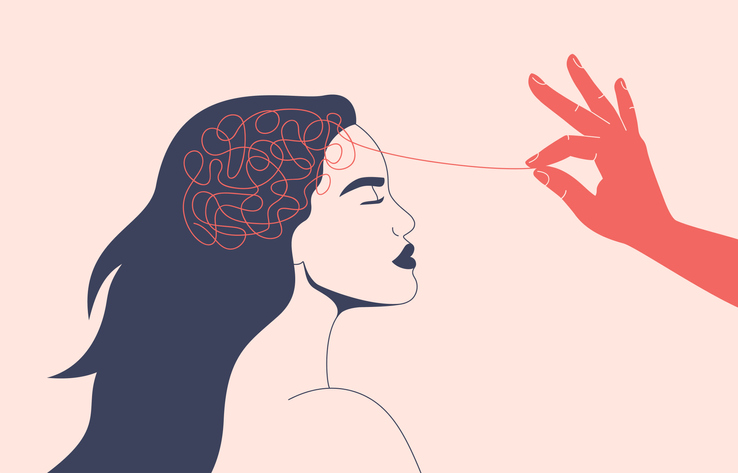Mental health is important. In the US, anxiety disorders are prevalent and can significantly impact someone’s life. There are a variety of different medication options prescribed for the treatment of anxiety disorders. One of the most commonly prescribed medications is Effexor.
If you use cannabis and recently received an Effexor prescription, you may be wondering if it’s safe to combine the two.
While each substance is commonly used on its own, combining cannabis and Effexor may increase the risk of unwanted effects. Research is limited, but caution is advised. As always, you should listen to the advice of your doctor and make informed decisions about your cannabis use.
What is Effexor?

Venlafaxine, also known as Effexor, is a serotonin and norepinephrine reuptake inhibitor (SNRI) commonly used as an antidepressant. This medication works by increasing certain neurotransmitters in the brain to affect mood. It was estimated that about 13.8 million Effexor prescriptions were written in 2022.
While Effexor can be used for anxiety and panic disorders, it can also work against depression. Possible side effects of Effexor can include (but aren’t limited to):
- Headaches
- Sweating
- Nervousness
- Nausea
- Insomnia
Additionally, some people also experience sexual side effects, including decreased sex drive and inability to achieve an erection.
Less common but potentially more severe side effects of Effexor may include:
- High fever
- Seizures
- Trouble breathing
- Suicidal thoughts
Combining Cannabis and Effexor: What the Latest Research Says

Some healthcare professionals caution against combining Effexor with cannabis, as doing so may worsen side effects, particularly if you’ve experienced adverse effects from either before.
While understanding your specific reactions to certain substances can help you make an informed decision, it’s always best to speak with your doctor before combining any substances or changing any treatment routine. If you’re thinking about using Effexor and cannabis together, consider speaking with your doctor. To help reduce the risk of side effects, it's often best to avoid using these two substances at the same time.
There’s no widely accepted benefit to using Effexor and cannabis together. The combination may intensify certain side effects and alter the effects of each substance. For example, using both may increase dizziness, drowsiness, or cause a spike in heart rate, depending on how your body reacts.
While some people may report that taking Effexor with cannabis helps their anxiety, this is only anecdotal. It’s possible that this combination could lead to even greater anxiety by elevating heart rate and leading to other distressing symptoms, like sweating and dizziness.
What About CBD and Effexor?

If you’re looking to avoid the “high” associated with THC, some people explore CBD products instead. Some individuals report feeling more relaxed when using both CBD and Effexor, though this is based on personal experience rather than clinical evidence. However, research into the effects of CBD and Effexor is limited, and the use of cannabidiol alongside Effexor may present new or increased health risks that could otherwise be avoided.
Further research is needed to better understand the implications of combining these two substances. If you’re considering combining CBD and Effexor, speak with your doctor beforehand.
Are You Considering Using Cannabis and Effexor?

Combining cannabis with any substance or medication carries its own risks. Cannabis research is still in its earliest stages, and there is a lot that researchers still don't know. That leaves the door open for unexpected interactions with other substances. If you are considering combining cannabis with any other substance or medication, speak to your doctor for proper medical guidance.
Likewise, stopping the use of a prescribed medication can lead to unintended consequences. Many medications take time to build up in the body. Stopping suddenly can cause unpleasant and potentially serious or even fatal side effects. If you'd like to stop using or replace a medication, you need to follow the guidance of your medical provider to make any approved adjustments safely.
The information in this article and any included images or charts are for educational purposes only. This information is neither a substitute for, nor does it replace, professional legal advice or medical advice, diagnosis, or treatment. If you have any concerns or questions about laws, regulations, or your health, you should always consult with an attorney, physician or other licensed professional.




